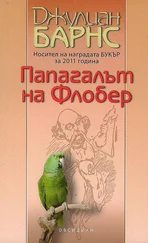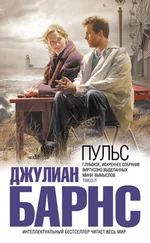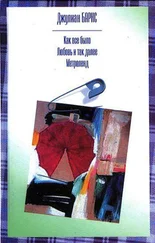If Martha’s visit had troubled Susan, it also, on further thought, troubled me. I had failed to consider her future relations with her daughters. My focus had all been on Macleod, on getting Susan away from him, and now, from a safe distance, divorcing him. For our joint sake, but mainly for hers. She had to scrub this mistake from her life and give herself the legal as well as the moral freedom to be happy. And being happy consisted of living with me, alone and unfettered.
It was a quiet neighbourhood, and we received few visitors. I remember one Saturday morning being stirred from the law of tort by the front doorbell. I heard Susan invite someone – two someones, a man and a woman – into the kitchen. About twenty minutes later, I heard her say, as she shut the front door,
‘I’m sure you feel a whole lot better now.’
‘Who was that?’ I asked as she passed my door. She looked in to see me.
‘Missionaries,’ she replied. ‘God damn and blast them, missionaries. I let them get it all off their chests and then sent them on their way. Better to waste their puff on me than someone they might convert.’
‘Not actual missionaries?’
‘It’s a general term. Actual missionaries are the worst, of course.’
‘You mean, these were Jehovah’s Witnesses, or Plymouth Brethren, or Baptists, or something?’
‘Or something. They asked me if I was worried about the state of the world. It’s an obvious catch question. Then they bored on about the Bible as if I’d never heard of it. I nearly told them I knew all about it and that I was a flaming Jezebel.’
And with that she left me to my studies. But instead I mused on these sudden bursts of fierce opinion, which so endeared her to me. I had been educated by books, she by life, I thought again.
One evening, the phone went. I picked it up and gave the number.
‘Who is that?’ said a voice I immediately recognised as Macleod’s.
‘Well, who’s that ?’ I replied, with fake casualness.
‘Gor-don Mac-leod,’ he said with extended heaviness. ‘And whom might I be having the honour of speaking to?’
‘Paul Roberts.’
As he banged the receiver down, I found myself wishing I’d said Mickey Mouse, or Yuri Gagarin, or the Chairman of the BBC.
I didn’t tell Susan about this. I didn’t see the point.
But a few weeks later we received a visit from a man called Maurice. Susan had met him before, once or twice. He might have had a connection to Macleod’s office. There must have been some arrangement made. It seemed he had picked a time when I would be there too. I’m not sure about it all, at this distance – maybe it was just luck on his part.
I failed to ask any of the obvious questions at the time. And if I had, perhaps Susan would have had the answers, perhaps not.
He was a man of fiftyish, I suppose. In my memory I have given him – or he has acquired over the years – a trenchcoat, and perhaps a broad-brimmed hat, underneath which he wore a suit and tie. He was perfectly cordial in behaviour. He shook my hand. He accepted a cup of coffee, he used the lavatory, he asked for an ashtray, and he talked about the bland, general topics adults went in for. Susan was in her hostess mode, which involved tamping down some of the things I most loved her for: her irreverence, her free-spirited laughter at the world.
All I can remember is that at one point the conversation turned to the closure of Reynolds News . This was a paper – Reynolds News and Sunday Citizen , to give its full title – which had fallen on hard times, relaunched itself as a tabloid Sunday, and then finally closed – presumably not long before this conversation.
‘I don’t think it matters much,’ I said. I didn’t really have any view on the matter. I might have seen a copy or two of Reynolds News , but was mainly just reacting to Maurice’s tone of deep concern.
‘You don’t?’ he asked civilly.
‘No, not really.’
‘What about the diversity of the press? Isn’t that something to be valued?’
‘All the papers seem much the same to me, so I don’t see that one fewer of them matters much.’
‘Are you by any chance part of the Revolutionary Left?’
I laughed at him. Not at his words, but at him. What the fuck did he take me for? Or perhaps, Who the fuck? He might as well have been a member of the tennis club committee, back at the Village.
‘No, I despise politics,’ I said.
‘You despise politics? Do you think that’s an entirely healthy attitude? Do you find cynicism a comfortable position? What would you replace them with? You’d close down newspapers, you’d close down our way of doing politics? You’d close down democracy? That sounds like a Revolutionary Left position to me.’
Now the fellow was really annoying me. I wasn’t out of my area of competence so much as my area of interest.
‘I’m sorry,’ I said. ‘It’s really not that at all. But you see,’ I added, looking at him with melancholy seriousness, ‘it’s just that I’m a member of a played-out generation. You may think we’re a bit young for it, but even so, we’re played out.’
He left shortly afterwards.
‘Oh, Casey Paul, you are one wicked person.’
‘Me?’
‘You. Didn’t you hear him say he’d worked for Reynolds News ?’
‘No, I thought he was a spy.’
‘You mean, a Russki?’
‘No, I just mean he was sent along to check up on us and report back.’
‘Probably.’
‘Do you think we should worry about that?’
‘Not for a couple of days at least, I’d say.’
You decide that, since you are a student, and all your fellow-students, apart from those who live at home, pay rent, then you should do so too. You ask a couple of friends how much they pay. You take the mid-point: four pounds a week. You can afford this out of your state grant.
One Monday evening, you hand Susan four pound notes.
‘What’s that?’ she asks.
‘I’ve decided I should pay you rent,’ you reply, perhaps a little stiffly. ‘That’s about what others pay.’
She throws the notes back at you. They don’t hit your face, as they might do in a film. They just lie on the floor between you. Awkward silences follow, and you sleep on your sofa bed that night. You feel guilty about not having introduced the subject of rent with more subtlety; it was like when you gave her that parsnip. The four green pound notes lie on the floor all night. The next morning you pick them up and put them back in your wallet. The subject is never mentioned again.
As a result of Martha’s visit, two things happened. The attic rooms were let out to lodgers, and Susan went back to the Village for the first time since we ran away together. She said it would be necessary and practical to return from time to time. Half the house belonged to her, and she could hardly rely on Macleod to pay the bills or remember to get the boiler serviced. (I didn’t see why not, but still.) Mrs Dyer would continue to serve and thieve on a daily basis, and would alert Susan to anything that needed her attention. She promised that she would only go back when Macleod wasn’t there. Grudgingly, I agreed.
I said a bit ago that ‘This is how I would remember it all if I could. But I can’t.’ There’s some stuff I left out, stuff I can’t put off any longer. Where to start? In the ‘book room’, as they called it, downstairs at the Macleods’. It was late, and I was unwilling to go home. Susan might already have been in bed; I don’t remember. Nor do I remember what book I was reading. Something I’d picked off the shelves at random, no doubt. I was still trying to get my head round the Macleod collection. There were leather-bound sets of the classics, old enough to have been handed down through maybe two generations; art monographs, poetry, a lot of history, some biography, novels, thrillers. I came from the sort of household where books, as if to confirm that they should be respected, were put in order: by subject, author, even size. Here, there was a different system – or rather, as far as I could see, no system at all. Herodotus was next to The Bab Ballads , a three-volume history of the Crusades next to Jane Austen, T.E. Lawrence sandwiched between Hemingway and a Charles Atlas manual of bodybuilding. Was it all an elaborate joke? Mere bohemian muddle? Or a way of saying: we control the books, they don’t control us.
Читать дальше








